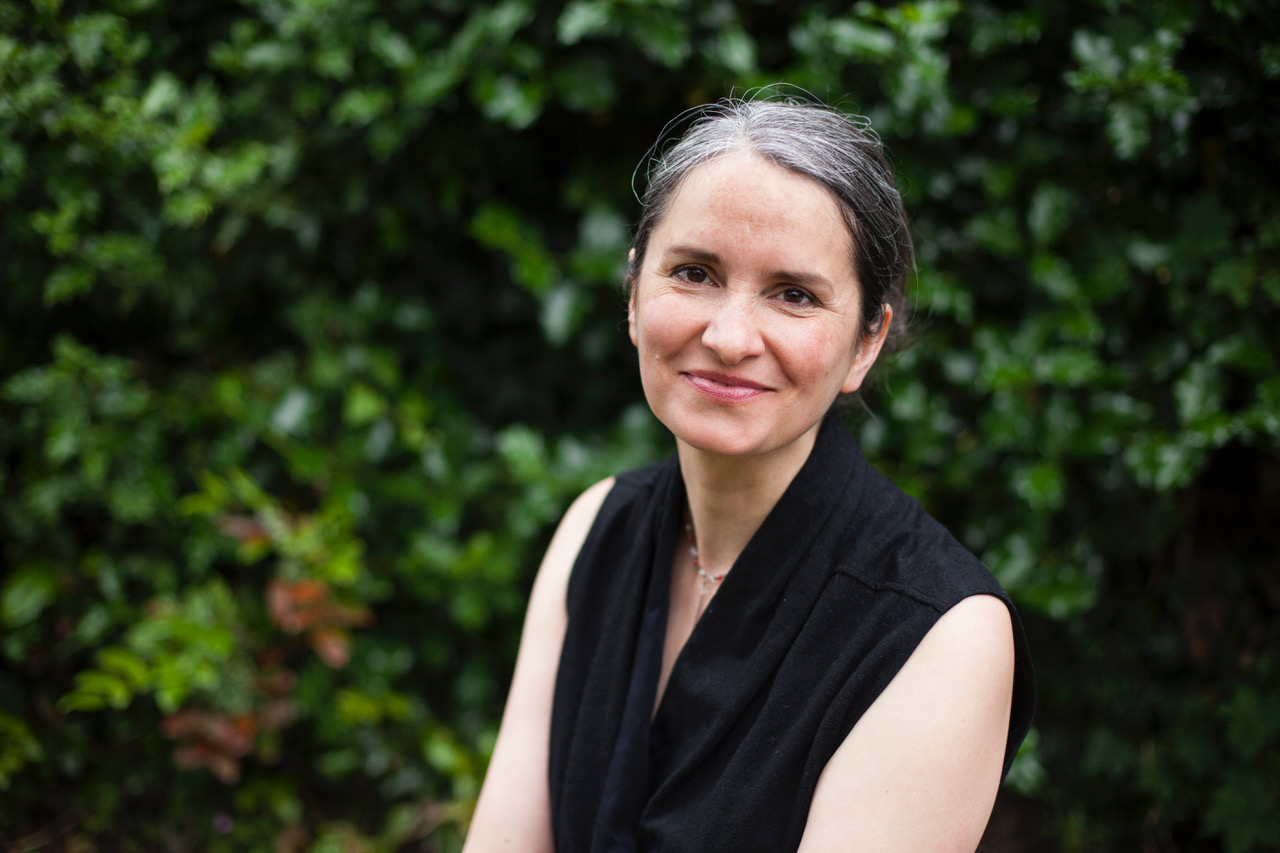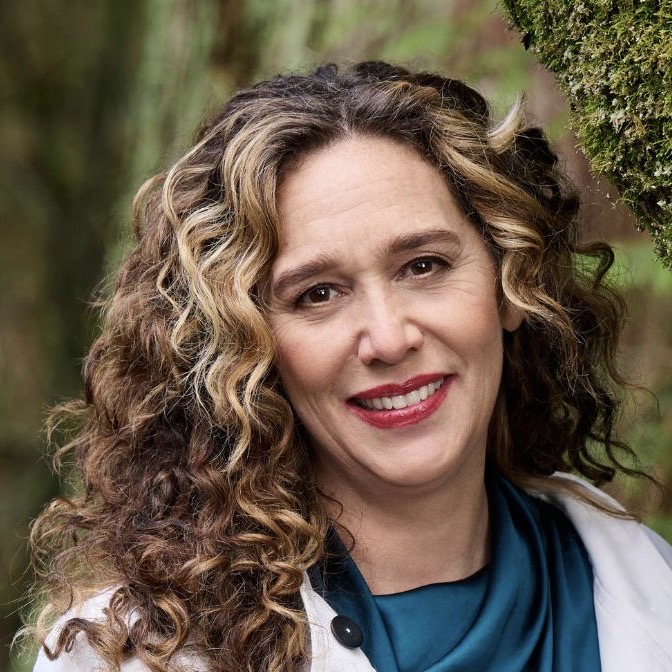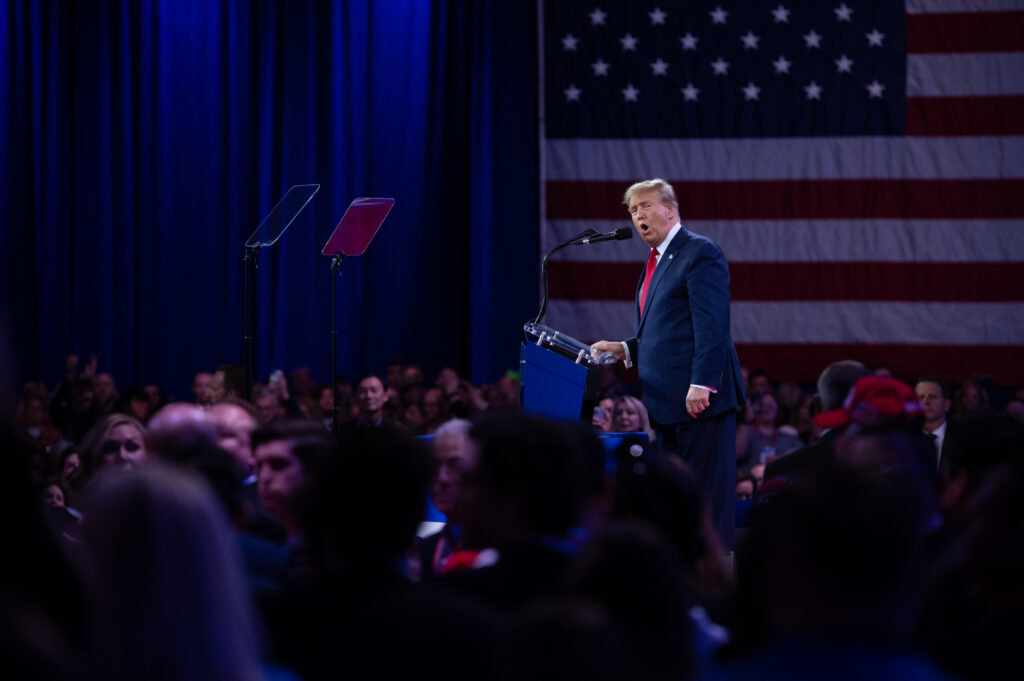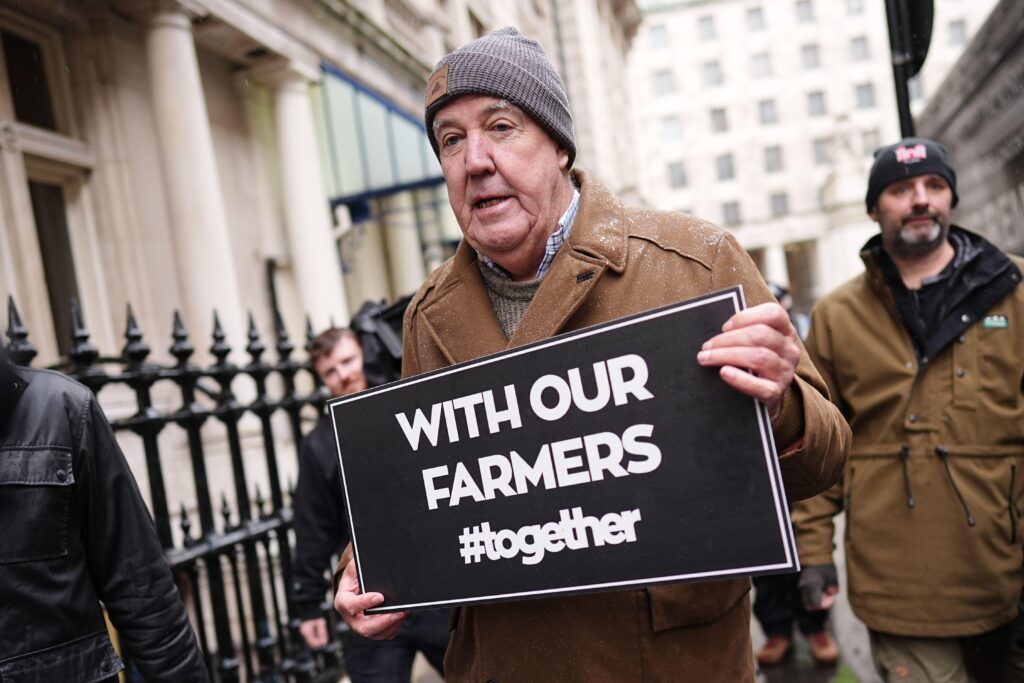Jojo Mehta co-founded Stop Ecocide in 2017, alongside legal pioneer the late Polly Higgins, to support the recognition and establishment of ecocide as a crime at the International Criminal Court at the Hague. She’ll be at COP28 in Dubai to push for an ecocide law.
Ecocide is generally defined as mass damage and destruction of ecosystems — severe harm to nature that is widespread or long-term. Stop Ecocide generates collaborations around the globe at every level of society, from diplomats and politicians to lawyers and academics, from corporate influencers to indigenous and faith leaders. As a result, legal recognition of ecocide is emerging as a powerful driver of change and a key solution addressing the climate and ecological crisis.
As current key spokesperson and executive director, Mehta has overseen the growth of the movement while coordinating between legal developments, diplomatic traction, and public narrative. She is also chair of the charitable Stop Ecocide Foundation and convener of the Independent Expert Panel for the Legal Definition of Ecocide chaired by Philippe Sands KC and Dior Fall Sow.
Mehta is a graduate of Oxford and London universities and has a background in communications and on-the-ground environmental campaigning. She has contributed to law conferences, diplomatic events, and environmental summits as well as podcasts, and articles for publications and broadcasters, including TIME Magazine, the New York Times, The Guardian, and the BBC.
In an interview with the online Climate Consciousness Summit 2023, running in tandem with COP28, Mehta spoke with Kosha Jourbert, chief executive of the Pocket Project, a nonprofit group that focuses on healing collective and inter-generational trauma, and a co-host of the summit. They discussed the inspiration behind the ecocide movement, how governments are considering adopting measures to make the law, and what brought Mehta into the movement.
The following is a partial transcript of their talk, edited for clarity. Visit the Climate Consciousness Summit 2023 to watch the entire interview.
KOSHA JOUBERT
What inspired you and Polly Higgins to have ecocide recognized as a crime along with other major crimes like homicide and genocide?
JOJO MEHTA
Humans have this deep separation from nature, that gives us a kind of cultural inability to recognize the severity of what it means when we harm the natural world. We have a large number of environmental laws around the world, and what we’re seeing is that they’re not effective or adequate to address global, ecological, and climate crisis.
When Polly first started looking at how we could create a legal duty of care for the Earth, she began by looking at the aspect of giving nature rights. What she realized was that the aspect that protects our rights is actually criminal law. We use criminal law to draw the moral lines, to define what we find acceptable as a society or not.
And that’s why we aim for the level of an international crime — our advocacy is to put ecocide alongside genocide and war crimes and crimes against humanity. Because when we look at the consequences of severe harm to nature, we are looking at a level of crime that does affect the international community as a whole, and has a severe effect not just on the ecosystems and the biodiversity that it affects, but ultimately also on us.
JOUBERT
All of us have an innate ethical sense that it’s wrong to take life. But that sense somehow stops at nature. Cutting down a tree, taking the life of an animal is somehow ordained, even as part of our food system. Where does taking life in ecocide become a criminal act? Where does this transgression against what we might call sacred law start?
MEHTA
To give a simple example, it’s completely ingrained in us that we don’t take each other’s lives. That’s what the criminal law of murderers is there to reinforce. Ultimately, the idea is to prevent us from killing each other. With ecocide, we’re looking at the idea of deterring, and preventing, mass harm to nature. You’re completely right, in terms of our survival, in terms of growing food, and building in nature, they involve some kind of destruction of the natural environment, and we can’t avoid that completely.
Our cultural attitude now has grown up over centuries in a kind of dualism that puts us against nature or above nature or separate from nature. We’ve evolved this situation where we have become completely out of balance with that relationship. In some Indigenous cultures, there’s this profound understanding that when we damage Mother Earth, there are consequences, that’s almost kind of a basic law of reciprocity. It’s no coincidence that those indigenous cultures have time and again, proved to be the best guardians of the richest biodiversity on the planet. There’s something about recognizing that when nature is severely damaged, ultimately, that comes back to harming ourselves. Pushing for an ecocide criminal law is creating a kind of a cultural taboo, which doesn’t currently exist, but needs to.
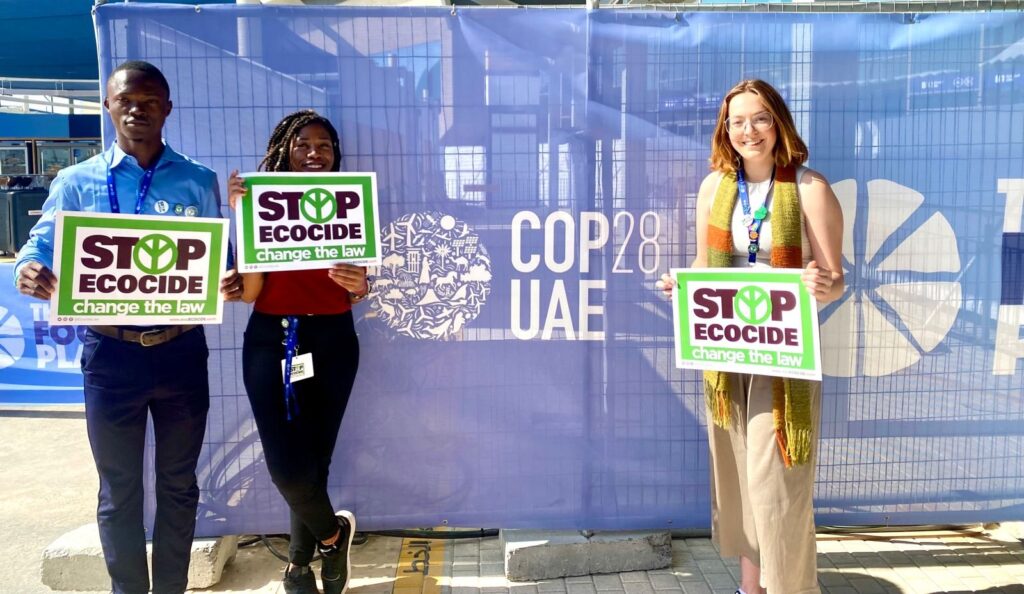
JOUBERT
So who are the people that you feel we can address with a law? What are the places where we can create a level of connection and responsibility?
MEHTA
The corporate PR machine has done a fantastic job of enhancing a feeling of guilt, and having every individual feel personally responsible for climate breakdown. We get told a lot that it’s our consumer choices that are creating this destruction. Actually, that’s quite misleading. Because if we look at just emissions, we know that there are 100 companies that are creating a huge percentage of the emissions that are damaging the planet. That is not ultimately down to each individual, just to use a simple example. For another example, if you walk into a supermarket and everything is covered in plastic, consumers didn’t decide to do that.
Bringing in a law like this can actually start to refocus responsibility at the level where those decisions are actually made. That’s why the concept of an international crime is really important, because those crimes speak to persons of superior responsibility. Whether that’s CEOs or executives, whether that’s ministers or policymakers, it effectively says a decision that you make could lead to this level of destruction that should be and will be made criminal.
The idea here is not just that prosecutions will occur once this law is in place. The point is to deter — the whole idea of criminal law is deterrence and prevention. You can imagine how a board of directors might approach its environmental responsibilities and obligations differently if it’s the law not to commit ecocide.
We are seeing a world where there are many environmental laws, there are some brilliant multilateral environmental agreements, but none of them are binding. So having something that has some kind of legal teeth, and that actually puts in place a kind of a safety rail that says, whatever you do, it should not create this level of harm, creates a deterrent at the highest level. And that’s incredibly important.
JOUBERT
I can get a sense of how the ecocide law becomes a key that leads to a transformation of many aspects of our systems.
MEHTA
There has been a real change in strategy, to have governments adopt this and bring it to the court. It’s a much more collaborative approach. If we want this law to be put in place, it’s a law that governments have to agree to. They’re the ones that are going to legislate, and they’re the ones that are going to come together and vote for adoption at the international level. So it’s really important to be in dialogue.
Ecocide means unlawful or wanton acts committed with knowledge that there’s a substantial likelihood of severe and either widespread or long-term damage to the environment caused by those acts. That definition, which emerged in 2021, has become the de facto starting point for legal, political, and legislative discussions around the world. To give you a sense of how in two years that has percolated through to the highest level, just in the last four months six countries have had proposals of ecocide law put forward into domestic governments’ international parliaments for discussion.
At the same time, the EU is also currently discussing this. The EU commission and council have to come to agreement. And we expect that to emerge within the next few weeks. One of the key aspects of the ecocide definition is, it doesn’t point fingers at particular acts. That’s super important, because most of environmental regulation is very detailed and talks about exactly how much, for example, of a certain toxin you can use in a certain context before it crosses a line. There are all of these very detailed kind of provisions that perhaps the biggest polluting corporations are paying expensive lawyers to either work around or balance out against profit.
JOUBERT
Tell us how many governments in total are currently discussing the inclusion of ecocide?
MEHTA
There is public record of discussion at either parliamentary or government level in at least 35 countries. And at least 29 of those are members of the International Criminal Court who are part of the Assembly of States Parties that has signed up to the Rome Statute. Those are all at different stages of discussion, and even more countries may be discussing this behind closed doors. In some places, it may be in the form a parliamentary petition, and in some there are proposals of law. Belgium, for example, is actually almost at the point of adopting the legislation; they’ve been through most of the government procedures to do that. They’re now awaiting parliamentary approval sometime in the next two to three months.
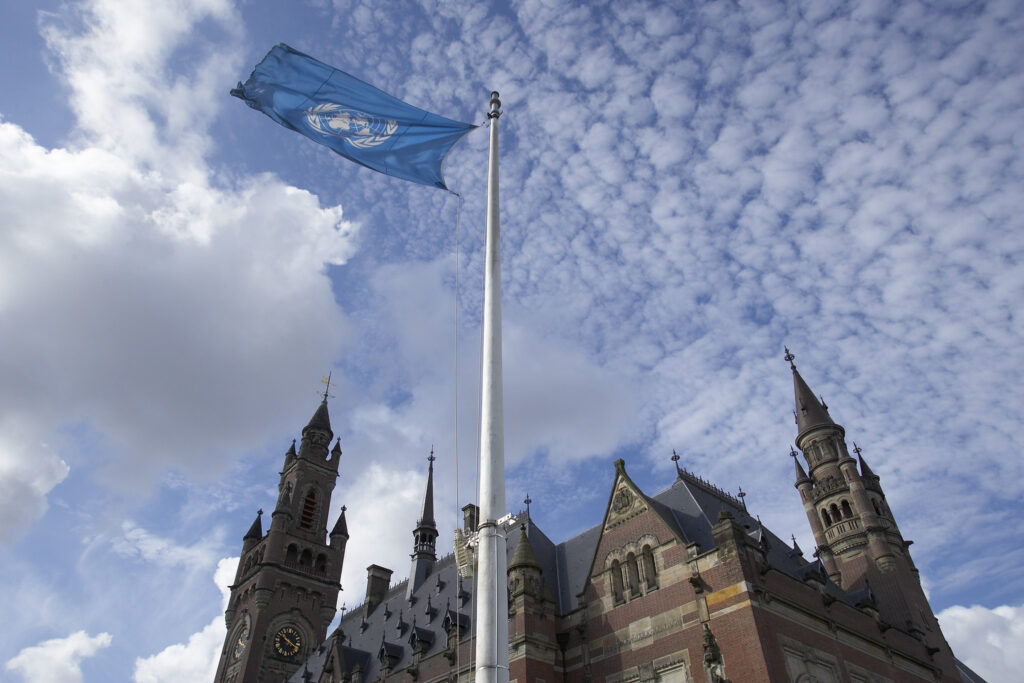
There are other countries where proposals have been put forward, including the UK, Brazil, Mexico, Italy, Spain, the Netherlands, and Turkey. They’ve all got political discussions going for an ecocide bill of some kind. We can show very clearly that this is a legislative direction of travel. We also have the Council of Europe, which is the body that created the European Court of Human Rights, discussing it. Also the Organization for Security and Cooperation in Europe, which has 57 state members.
The ecocide movement is further ahead at the legislative and political level, than it is in the public mind. So having a conversation with you is part of raising awareness. It’s so easy to fall into despair to recognize the awful things that are happening, and not be aware that there are some concrete solutions moving forward in a very rapid fashion. It brings a bit of hope into the overall picture, that there’s work going on, that is bearing fruit at the legislative level.
JOUBERT
It’s beautiful to see how much this is spreading. What I can feel from your words is this is an idea whose time has come. I thought you could talk about what triggered you to step onto this path?
MEHTA
The real moment that put me on this path was about 10 years ago when I discovered what fracking was. It’s a very polluting way of extracting oil and gas from the earth. I remember when I discovered it, I realized the U.S. was already going down this route for extracting oil and gas, and the UK was maybe going to follow it. I remember being quite upset about this.
At that point, I was an armchair activist, sending off petitions, writing to my local elected representative every now and again. But that moment got me up out of that armchair and onto the streets. I started researching, producing, giving talks, organizing demonstrations, and writing leaflets. And that was how I met Polly Higgins. Her solution of criminalizing ecocide felt so intuitive, like a clear and simple solution. At the time, it was still seen as extreme and from left field. Now, with everything that’s happened since, it feels like common sense.
I encountered an article just a couple of weeks ago that highlighted this for me. It covered how the UK and many other countries have been busy criminalizing climate protesters. In some countries in the world, protesters and land defenders actually encounter far worse than legal action, like disappearance or even murder. That comes from a framing that says: These people are interrupting and disrupting legitimate business activity. But as soon as you bring in the concept that business activity itself could potentially be criminal, you completely change that narrative. Now you’re saying, No, these people are not criminals, they’re actually upholding the law. It’s the business activity harming the climate that could be criminal. That’s a complete change in narrative.
But what struck me was, the article was also saying that the reason governments go for criminalizing climate activists is that criminal law is relatively cheap to enact. It can be done quickly, and it has a massive deterrent effect. I realized, that’s absolutely why ecocide law is so important. When governments complain that to deal with the climate and ecological crisis, we’re going to have to spend a lot of money. But putting a law in place, is not an expensive procedure. Actually, what it will do is steer everything in the right direction, it will save untold billions. It’s a simple and cheap solution that reframes the entire situation. And that’s something we should be telling everybody — it’s cheap, it’s great, it really works.
JOUBERT
You’ve already told us that you would like us to get involved in passing an ecocide law, and to think about this, to let others know about it. What is the best way to support criminalizing ecocide? What can we do?
MEHTA
The fundamental thing is what you mentioned, and that is literally spreading the word. When I say that, I mean the word ecocide. Etymologically it comes from the Greek and Latin, meaning to kill one’s home. It’s such an evocative way to describe what is happening to the planet, and that it needs to stop. I think this is fundamentally important. I think we sometimes underestimate the power of conversation. When an oil company employs someone to do it, we call it lobbying. Effectively that’s what we’re doing with our advocacy, having the right conversations in the right places, whether that’s the corridors of the UN, or diplomatic conversations behind closed doors, or conversations across civil society in many different areas.
Subscribe to our newsletter
Stay up to date with DeSmog news and alerts


